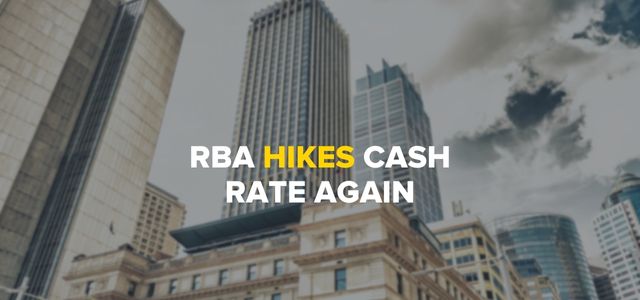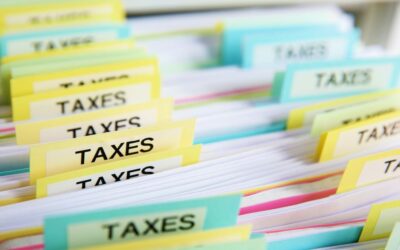In this article:

Rising interest rates may cause anxiety for some and relief for others, so let’s dive into some of the burning issues on today’s announcement of a 0.5% increase in the official cash rate.
Why are we seeing another rise?
Inflation has continued to increase “significantly” according to RBA Governor Phillip Lowe. Further, Australia’s unemployment figures are at historic lows and there are signs that the economy is ‘overheating’.
An overheated economy is one that is growing too quickly. A hot economy is a problem because the supply of goods cannot keep up with demand. The RBA is raising interest rates ‘hard and early’ so that they can take a more cautionary approach to rising rates in the future.
Couple this with external factors which are affecting markets globally, “over time, it’s not unreasonable to expect interest rates will get to 2.5%,” said RBA Governor Phillip Lowe after last month’s RBA meeting.
“How quickly we get there, and if we do get there, will be determined by how events unfold,” said Mr Lowe.
External market shocks such as the war in Ukraine and China’s strict lockdowns, which is wreaking havoc on supply chains across the globe, are contributing to Australia’s rising inflation.
How does this impact borrowers?
After today’s announcement, if lenders were to pass on the full 0.50% increase to their home loan products, this would mean an increase of $27.44 per month, per $100,000 borrowed, in terms of minimum monthly repayments over a 30 year loan term. For example:
- Repayment increase on a $400,000 loan = $109.76 a month
- Repayment increase on a $600,000 loan = $164.64 a month
- Repayment increase on an $800,000 loan = $219.52 a month
Property Prices Fall
House prices have generally been falling across the country, with Sydney and Melbourne prices practically flatlining for most of 2022.
The rise in interest rates impacts the demand for houses, however, higher interest rates means borrowers can borrow slightly less than in previous times, meaning they can spend less on buying their home, meaning house prices should fall.
House prices will be a key area for the RBA to monitor in the coming months.
What do the experts say?
Economic expert, Stephen Koukoulas predicts that house prices will fall, but not by the double-digit percentages that many are suggesting.
He said, “There might be the odd city where we get the double-digit price falls…but the thing that I keep in the front of my mind when I’m looking at house prices is the experience in 2000 to 2008 when the RBA hiked the cash rate 3%.”
“What happened to house prices then? They increased 32%. Why? We had an extremely tight labour market. That meant people were willing and able to borrow to build up property prices, even in a rate hike environment.”
“While people might not like paying higher mortgage rates, who does of course, but the way that I view it is, it’s much easier to pay your mortgage, even if it’s a big one, so long as you’ve got a job.”
“Even if you’ve got a small mortgage, if you’re unemployed, it’s pretty hard to make your repayments. So that’s why, to me, a strong labour market is something of an antidote, in terms of house prices, to the rate hikes.”
“In addition to that, Australia’s borders are reopening, we are going to see that underlying demand for houses coming back. Australia’s going to have over 200,000 people next year coming into the economy and they’ve got to live somewhere. They have to rent or buy somewhere. So, demand for housing from international forces will also come back.”
Chief Economist at Westpac, Bill Evans explained to Mark Bouris on Property Insights that with wages increasing, inflation will continue to skyrocket.
He said inflation is not new, it was already a part of our economy: “In the lead up to this inflation boom, inflation was there before in terms of costs, but it wasn’t being passed through to everyday consumers. Now, businesses have basically said ‘enough is enough.’”
“I’ve spoken to businesses whose whole margin last year has gone. So now they’re saying, ‘we cannot continue to contain these cost pressures. We understand that for the last 20 years, it was all about keeping your costs down, because you didn’t have much pricing power. We now think we’ve got pricing power.'”
So why do businesses suddenly think they can charge more?
“Businesses have got no choice. You’ve got to give it a go. You’ve got to protect your margin… And now, people are starting to feel that they’ve got more capacity to lift their wages. And so they will be in a position where they feel they can pay more.”
The key takeaway from this rate increase?
The RBA is rising rates ‘hard and early’ but this is a strategy for the long term. They are attempting to slow inflation without jacking up rates too high!
There is plenty of concern for borrowers who took out a home loan over the past five years, with the media generally focused on the increased repayments that mortgage owners will have to manage. What is often disregarded, is that all borrowers in the last five years, had their loan application assessed at much higher rates than current interest rates or even where rates are expected to rise too.
That said, when increased mortgage repayments are coupled with the rising cost of living, this may motivate some Australians to place their property on the market, driving up the supply of houses.
If you’re concerned about your borrowing power, or your current home loan, reach out to one of our experienced brokers to discuss your circumstances.



